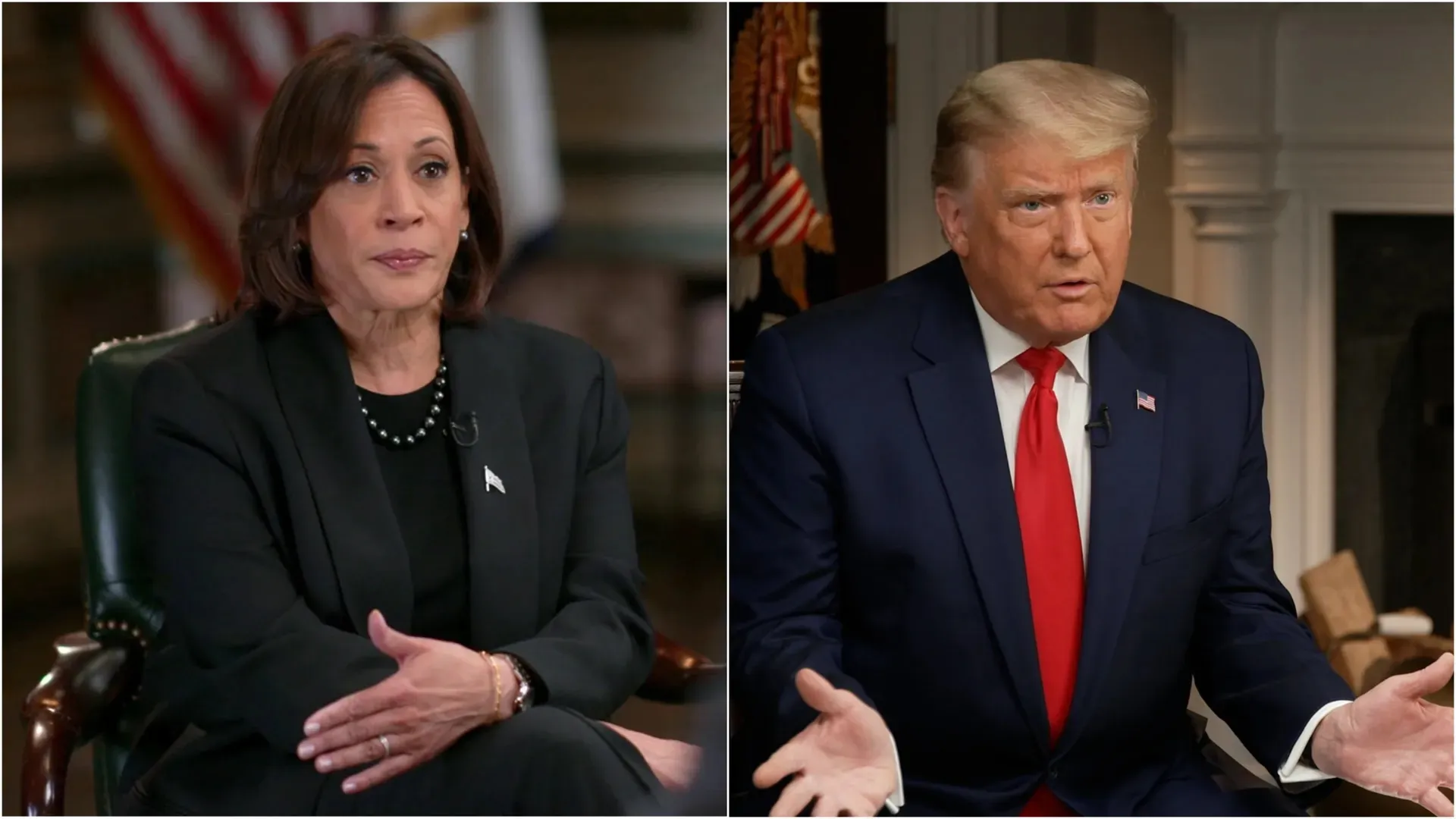October 31, 2024
Former President Donald Trump filed a $10 billion lawsuit against CBS News for alleged misrepresentation and defamation after an interview aired last week with Vice President Kamala Harris. In the suit, filed in a New York federal court, it was claimed that CBS’s broadcast knowingly propagated false information with the intent to destroy Trump’s reputation and political future.
Claims of Defamation and Misrepresentation
The lawsuit said Trump’s lawyers alleged that CBS News had aired portions of the Harris interview containing “false and misleading statements” about Trump’s previous administration. According to their allegations, during discussions, both CBS and Harris outlined that Trump’s policies and actions while he was in office had harmed-and were still harming-the United States economy, democracy, and social stability-a matter to which he strenuously objects.
Trump’s lawyers say CBS News failed to meet minimum journalistic standards of fairness and balance by not extending an opportunity to Trump either to reply or to clarify his position on the issues addressed. The complaint states, in part, “CBS News, through selective editing and framing, perpetuated harmful narratives about Mr. Trump without affording him the opportunity for counterarguments.”
Trump’s Statement on Lawsuit
In the statement to the public, Trump accused CBS News of going on a “deliberate campaign” to destroy his good name and political legacy. “The mainstream media has been out to get me since day one,” he said. “This time, they’ve crossed a line. I will not stand idly by while they deceive the American public about my presidency.” Trump also admitted that he intends to make media companies responsible for “bias and misrepresentations, stating the lawsuit was about “stand up for the truth and preserve the public’s confidence in news.”
CBS News Response to Lawsuit
CBS News has not commented officially on the lawsuit to date, but sources with the network indicated they are confident of the integrity of the Harris interview, claiming it met all internal editorial guidelines. They are expected to file a defense based on journalistic freedom and likely to claim that Harris’s statements are First Amendment-protected opinions.
Legal experts say CBS’s defense likely will center on the difficulty in proving malice or intent to harm in defamation cases involving public figures. Under U.S. law, public figures have to show not only that a statement was false but also that it was made with malicious intent or in reckless disregard for the truth—a standard often difficult to prove in court.
Political Implications of the Lawsuit
The lawsuit also comes as Trump is launching a possible 2024 presidential campaign and ratchets up the tension between Trump and some of the biggest media outlets. His campaign has long cast the media as perhaps the main enemy in this regard, claiming news organizations, like CBS, are in league with political adversaries to defame him and diminish his standing.
The lawsuit might unify Trump’s base over his contention that he is targeted by the media, say political analysts. “This lawsuit fits with Trump’s long-standing contention that the media is biased against him,” says Dr. Emily Carver, a political analyst. “It’s not just a legal battle; it’s a way for Trump to show himself as a defender against what he calls media misinformation.”
An Unprecedented Financial Demand
The $10 billion figure remains a major part of the lawsuit, among the largest damages claims to have ever been filed in a media-related case. Trump’s legal team argues that this amount represents the extent of the damages to Trump’s reputation both in the political arena and in his private business dealings. They say the interview has “irreparably damaged” his image, affecting both his influence and financial possibilities.
Lawyers for Trump say the dollar figure is a proportional response to the injury caused, adding that “in today’s media market, one false report can reach billions in moments and cause irreparable damage.” Critics say the number is about headline-grabbing and making a public statement rather than a serious estimate of damages.
Possible Lawsuit to Come
Legal experts say the suit is shaping up to be a long, loud fight in the courtroom. CBS News will likely put up a fierce battle, citing First Amendment protections and characterizing Trump’s suit as an assault on press freedom. Trump’s lawyers will have to argue that the network stepped across the line from protected speech into injurious defamation.
Experts say such a media lawsuit, on this scale, may have ramifications extending to the broader implications of the relationship between public figures and the press. If Trump’s case moves forward, it may set a legal precedent regarding how defamation law applies to media companies and public figures, which could have ramifications for the editorial practices within major news organizations.
Public Reaction and Future Considerations
Public reaction to the lawsuit ran along deeply polarized lines, mirroring the greater divide in American politics. To Trump’s supporters, the lawsuit represents a necessary takedown of perceived media bias; for critics, it is an attack on press freedom and a strategy to silence opposition voices.
As this case proceeds, it again places the delicate relationship between media organizations and political figures in the spotlight, with Trump’s lawsuit against CBS representing yet another chapter in his ongoing tussle with major media. The decision will probably delineate subsequent discussion of media responsibility, defamation, and free speech in American journalism.
